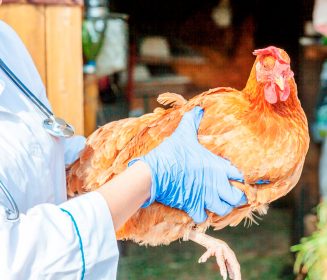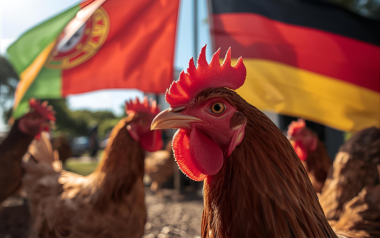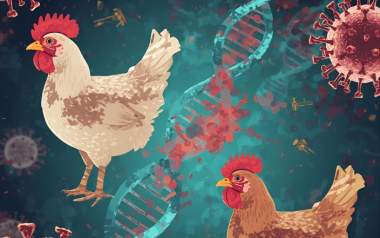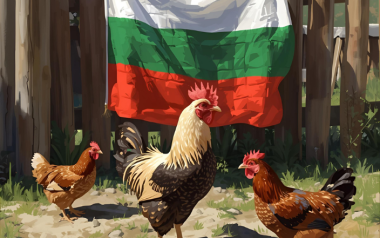Sources: Available upon request
28 Mar 2024
Debunking the chicken myth: Guillain-Barré Syndrome and poultry
Guillain-Barré syndrome (GBS) is a rare but serious autoimmune disorder that affects the peripheral nervous system. It can lead to muscle weakness, paralysis, and, in severe cases, respiratory failure. While the exact cause of GBS remains elusive, there have been misconceptions surrounding its association with chicken consumption.
Guillain-Barré syndrome (GBS) is a rare but serious autoimmune disorder that affects the peripheral nervous system. It can lead to muscle weakness, paralysis, and, in severe cases, respiratory failure. While the exact cause of GBS remains elusive, there have been misconceptions surrounding its association with chicken consumption. In this article, we delve into the science behind this myth and explore the evidence that debunks it.
The Chicken Connection
The idea that eating chicken could trigger GBS gained traction due to a few isolated cases reported in the past. However, it is essential to recognize that correlation does not imply causation. Just because someone who consumed chicken developed GBS does not mean that chicken consumption directly caused the syndrome.
The Campylobacter Culprit
One of the primary culprits associated with GBS is the bacterium Campylobacter jejuni. This pathogen is commonly found in undercooked poultry, especially chicken. When ingested, C. jejuni can lead to food poisoning, and in some cases, it triggers an immune response that mistakenly attacks the peripheral nerves, causing GBS.
The Role of Antibodies
Researchers have identified specific antibodies that cross-react with components of peripheral nerves and C. jejuni. These antibodies are more prevalent in individuals with GBS. However, it is crucial to note that these antibodies can also be present in people who have never consumed chicken. Therefore, attributing GBS solely to chicken consumption oversimplifies the complex interplay of immune responses and genetic predisposition.
Scientific Studies
Several scientific studies have investigated the chicken-GBS link. Let’s examine some key findings:
- Epidemiological Studies: Large-scale epidemiological studies have failed to establish a significant association between chicken consumption and GBS. These studies consider dietary habits, exposure to pathogens, and other risk factors. The consensus remains that GBS is multifactorial, and chicken consumption alone is unlikely to cause it.
- Case-Control Studies: Case-control studies compare GBS patients with healthy controls. While some studies have reported a slight increase in GBS risk associated with chicken consumption, the effect size is minimal. Other factors, such as recent infections or vaccinations, play a more substantial role.
- Animal Models: Researchers have used animal models to explore the immune response triggered by C. jejuni. These studies demonstrate that the bacterium can indeed induce GBS-like symptoms. However, the models involve direct injection of C. jejuni rather than natural chicken consumption.
Conclusion
In summary, it is erroneous to directly link chicken consumption to Guillain-Barré syndrome. While C. jejuni is a potential trigger, other factors contribute significantly to GBS development. Public health measures, such as proper cooking of poultry and hygiene practices, remain essential in preventing foodborne illnesses. Let’s dispel the myth and focus on evidence-based understanding rather than chicken scapegoating.








































